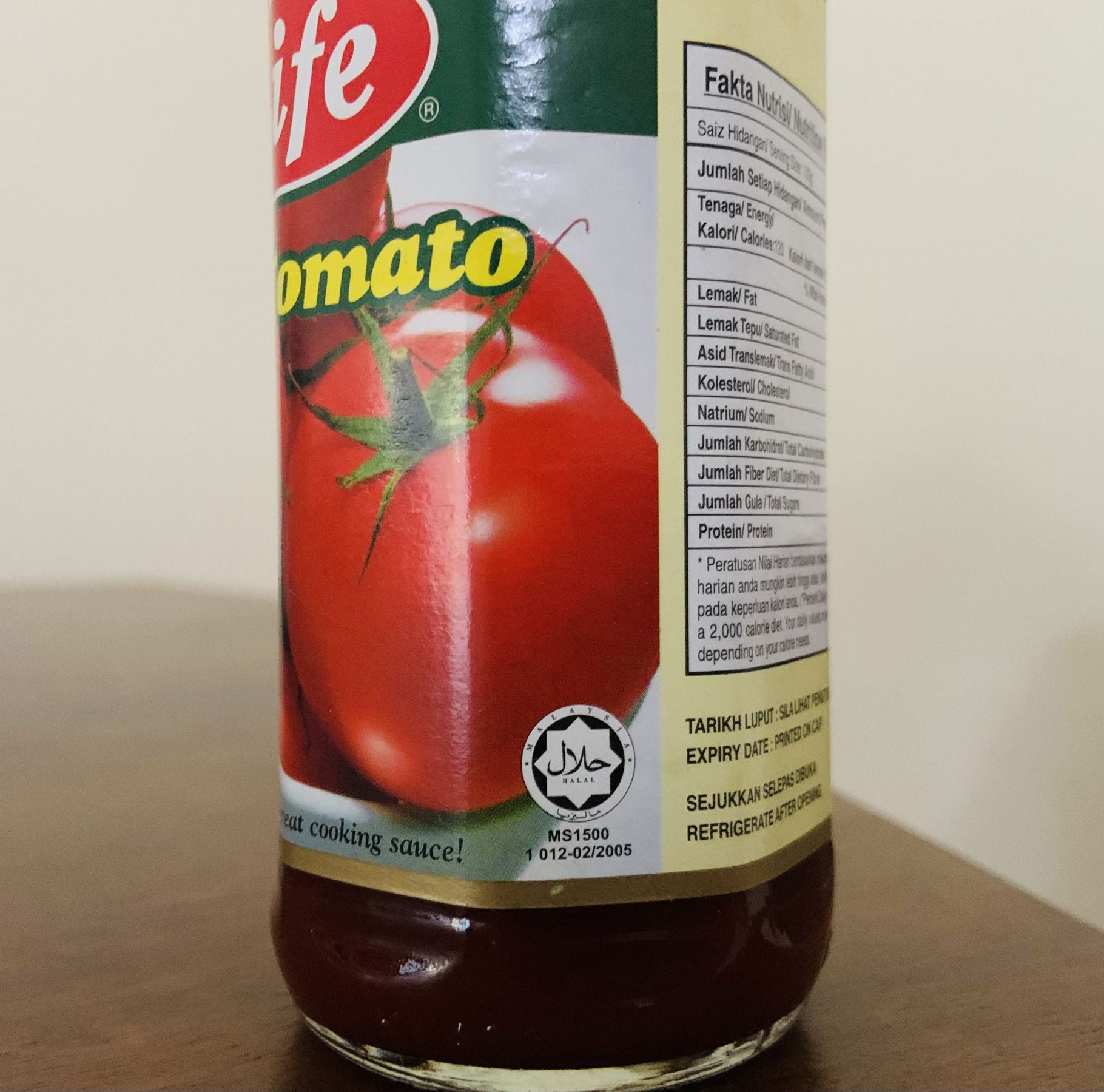About Halal Product
Fundamentals of Halal Food
Meaning
Halal is an Arabic term that means "permissible" or "lawful" in accordance with Islamic Shariah law. Halal food refers to food that is prepared and consumed according to Islamic dietary guidelines.
The fundamental principles of halal food are based on the Quran and the Hadith (the teachings and sayings of the Prophet Muhammad).
Top things that are prohibited
 Pork
Pork Alcohol
Alcohol Meat that are not process in Halal way
Meat that are not process in Halal way Animal carcasses
Animal carcasses Blood
Blood
The fundamental principles of halal food are based on the Quran and the Hadith (the teachings and sayings of the Prophet Muhammad). These principles include:
- Prohibition of pork and pork products: Prohibition of pork is an act of faith that follows Allah's command from the Quran, and Muslims are rewarded for their obedience.
- Prohibition of alcohol and other intoxicants: Consumption of alcohol and other intoxicants is prohibited in Islam. Islam emphasizes the importance of preserving one's health and well-being and avoiding actions that may cause harm to oneself or others.
- Use of halal slaughter: The animal must be alive at the time of slaughter, and the slaughter must be performed by a Muslim who recites the name of Allah before the animal is killed. The animal must also be free from disease and defects.
- Prohibition of blood and blood products: the consumption of blood has been linked to health risks such as the transmission of diseases, and the presence of toxins and harmful chemicals that can accumulate in the blood. Therefore, as a means of safeguarding one's health, Muslims are advised to avoid consuming blood and blood products. However, the use of blood in medical procedures, such as blood transfusions, is permissible in cases of medical necessity.
- Prohibition of meat from animals that were not slaughtered in the name of Allah: This includes animals that were not slaughtered according to Islamic dietary laws.
- Prohibition of meat from animals that were already dead: Only meat from animals that were alive at the time of slaughter is permissible.
- Prohibition of meat from carnivorous animals: Meat from animals that are carnivorous, such as lions and tigers, is not permissible in Islamic dietary laws.
In addition to these principles, there are also guidelines for the preparation and handling of halal food. These include using utensils that are free from contamination and avoiding cross-contamination with non-halal foods.
Halal certification is a process by which a third-party organization verifies that a food product meets the requirements of Islamic dietary laws. Halal certification helps to ensure that halal food products are accurately labeled and meet the expectations of Muslim consumers.
Malaysia As Global Halal Hub
Malaysia is known as a leading "Halal Hub" globally, meaning that it has become a center for halal products and services. The country has established itself as a significant player in the halal industry, with a comprehensive halal ecosystem that includes certification, accreditation, research, and development, as well as trade and marketing.
Halal refers to products and services that are permissible under Islamic law, and this includes food and beverage products, cosmetics, pharmaceuticals, and many other consumer goods. Malaysia's position as a halal hub is built on its commitment to ensuring that all products that carry the halal label meet stringent Islamic dietary laws and standards.
Malaysia's halal market is thriving, with the country exporting halal products to more than 100 countries worldwide. In 2020, the global halal market was valued at approximately USD 2.1 trillion, and Malaysia's share of the market was estimated to be around 7%. The demand for halal products is expected to continue growing, driven by the increasing Muslim population and the trend towards ethical and sustainable consumption.
Malaysia has a competitive advantage in the halal market due to its strong halal certification system, which is recognized globally. The country's halal certification process is comprehensive, covering the entire supply chain, from raw materials to finished products. Malaysia also has a well-established halal infrastructure, including halal testing laboratories, halal logistics and transportation services, and halal trade fairs and exhibitions.
In summary, Malaysia has established itself as a leading Halal Hub, with a thriving halal market for food and beverage products, cosmetics, pharmaceuticals, and other consumer goods. The country's strong halal certification system, well-developed infrastructure, and commitment to quality and standards have helped position Malaysia as a key player in the global halal industry.
Understanding the Differences and Importance in the Malaysian Market
Halal certification and Muslim-friendly product are two terms that are often used interchangeably in the Malaysian market. However, there are significant differences between the two, and understanding these differences is crucial for businesses that want to cater to Muslim consumers.
Halal Certification in Malaysia
Halal certification is a process that ensures that a product is compliant with Islamic dietary laws. The certification is granted by a recognized halal certification body, which examines the entire supply chain of the product, including the raw materials, production process, and packaging.
In Malaysia, halal certification is mandatory for all food and beverage products, as well as pharmaceuticals, cosmetics, and other consumer goods. The certification process is overseen by the Department of Islamic Development Malaysia (JAKIM), which is responsible for granting halal certification to businesses that meet the halal requirements.
For businesses that want to sell their products in the Malaysian market, halal certification is essential. The certification not only ensures that the product is compliant with Islamic dietary laws but also gives consumers the assurance that the product has been verified by a recognized halal certification body.

Muslim-Friendly Product in Malaysia
Muslim-friendly product is a term that refers to products that are not halal certified but are suitable for Muslim consumers. These products may not contain any haram (forbidden) ingredients, but they have not undergone the rigorous halal certification process.
Examples of Muslim-friendly products include vegetarian food, seafood, and products that have been produced in countries with high Muslim populations.
While Muslim-friendly products may appeal to Muslim consumers, they may not provide the same level of assurance as halal-certified products. Consumers may still have doubts about the ingredients and production process of the product, which may affect their purchasing decisions.
The Importance of Halal Certification and Muslim-Friendly Products in the Malaysian Market
In Malaysia, where Islam is the official religion, halal certification is a significant factor for businesses that want to succeed in the market. Muslim consumers make up a significant portion of the population, and catering to their dietary requirements is essential for businesses that want to capture this market segment.
Halal certification not only provides assurance to Muslim consumers but also enables businesses to export their products to other Muslim-majority countries. Malaysia is a hub for halal products, and businesses that obtain halal certification can tap into the global halal market, which is estimated to be worth over $2 trillion.
Muslim-friendly products, on the other hand, can be a way for businesses to cater to Muslim consumers without going through the halal certification process. However, it is important to note that these products may not provide the same level of assurance as halal-certified products, and businesses that market their products as Muslim-friendly should be transparent about their ingredients and production process.
In conclusion, halal certification and Muslim-friendly products are two distinct concepts that businesses in Malaysia should be aware of. While halal certification is mandatory for certain products, Muslim-friendly products can be a way to cater to Muslim consumers without going through the halal certification process. Understanding the differences between the two and catering to the dietary requirements of Muslim consumers can help businesses succeed in the Malaysian market and tap into the global halal market.